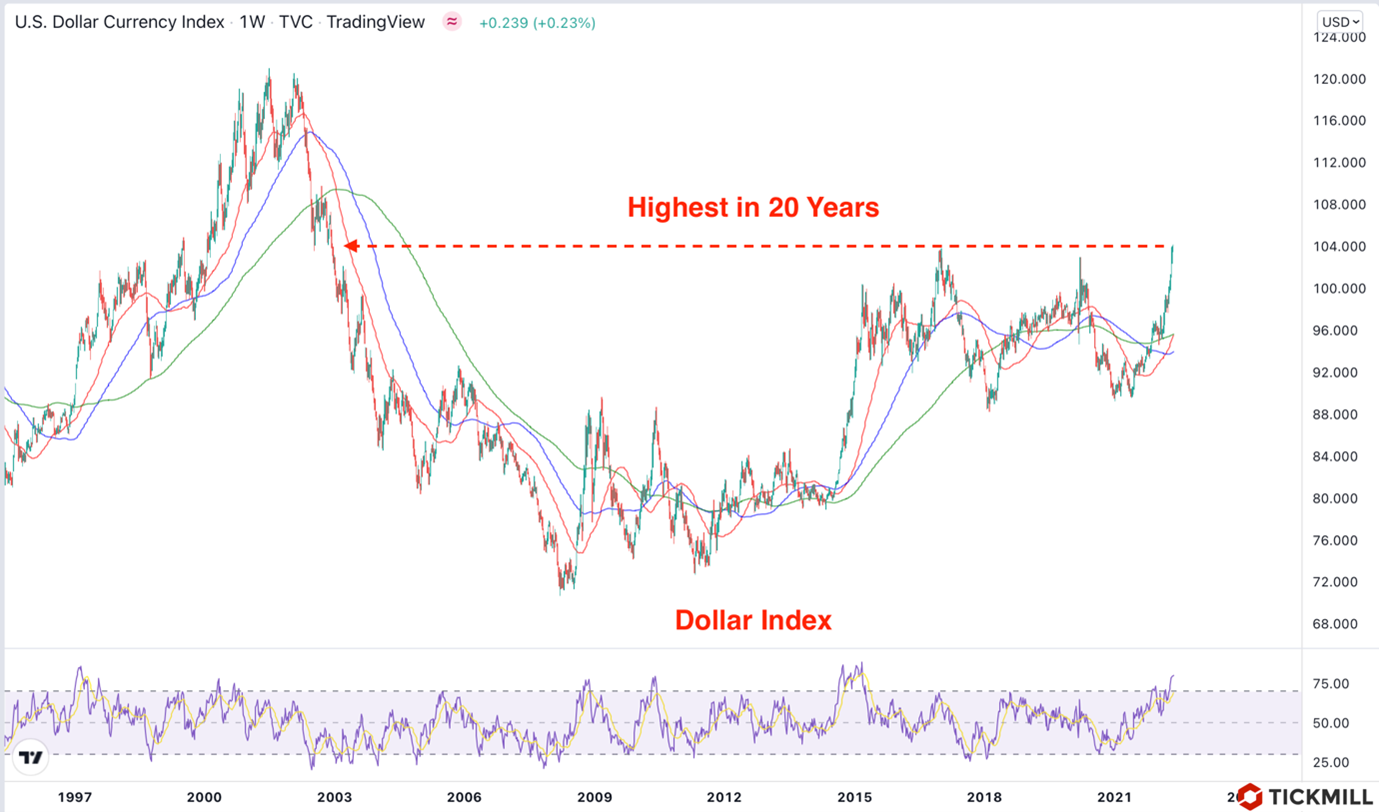Falling Stocks and Bonds Means Next Recession can be Different

Monday kicked off with a fresh wave of risk aversion, with European markets and US Futures falling by an average of 1.5%. SPX futures fell below 4100 points, a probe below 4000 is in sight which will likely trigger powerful rebound. Greenback sticks to recent highs (104 pts on DXY). Market sentiment continues to be dominated by three themes: 1) The conflict in Ukraine, 2) China's economic slowdown, and 3) Fed tightening. On the third topic, release of April US CPI in Wednesday should have a big impact on market sentiment as consumer inflation and wage growth are now the key variables determining tightening path of the Fed. Short-term outlook for greenback remains positive thanks to EM outflows which should be expressed in a larger greenback appreciation in EM pairs (USDZAR, USDMXN, USDBRL, USDINR) compared to others.
Despite decreasing demand for risk there is apparently no active rotation to bonds: with expectations of higher inflation, bonds may be no longer considered as a safe heaven or are considered, but to a lesser extent. As a result, due to the slump both in stocks and bonds, the dollar trades at its highest level in almost 20 years:

Speaking of upcoming release of the US CPI for April, an inflation reading below 8% consensus forecast is unlikely to be a big surprise for investors, especially if used car prices, which had been rising at a frantic pace in 2021, show a bigger drop. At the same time, an upside surprise may well trigger a rumor that the Fed may hike interest rate by 75 bp at the next meeting, which, according to the Fed is off the table for now. In case of upside surprise in inflation with a print closer to 8.5% in headline reading we can easily see a new high in the dollar and a new leg of Treasury sell-off.
The story of European sanctions against the Russian Federation and the oil embargo develops according to a not very favorable scenario for the market: the United States imposed sanctions on the top management of Gazprombank, which may portend imminent sanctions on the bank itself. In this case, Russia will not be able to receive payments for key commodity exports. For Europe, this threatens to bring even more inflationary pressures and probably a recession later this year.
USDCNY extended gains on Monday, which added to the market anxiety in overall as falling mainland renminbi has recently been perceived by investors as a measure of the CCP to cushion the blow from their tough policy to combat covid and slowdown in economic activity. USDCNY gained almost one percent on Monday which put greater pressure on Asian stocks.
Disclaimer: The material provided is for information purposes only and should not be considered as investment advice. The views, information, or opinions expressed in the text belong solely to the author, and not to the author’s employer, organization, committee or other group or individual or company.
Past performance is not indicative of future results.
High Risk Warning: CFDs are complex instruments and come with a high risk of losing money rapidly due to leverage. 72% and 73% of retail investor accounts lose money when trading CFDs with Tickmill UK Ltd and Tickmill Europe Ltd respectively. You should consider whether you understand how CFDs work and whether you can afford to take the high risk of losing your money.
Futures and Options: Trading futures and options on margin carries a high degree of risk and may result in losses exceeding your initial investment. These products are not suitable for all investors. Ensure you fully understand the risks and take appropriate care to manage your risk.
